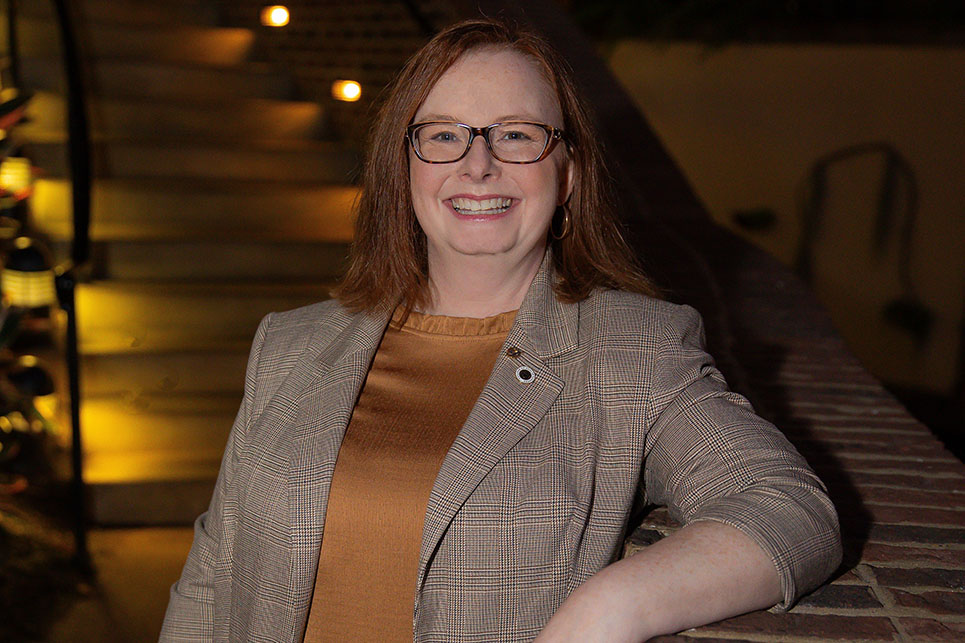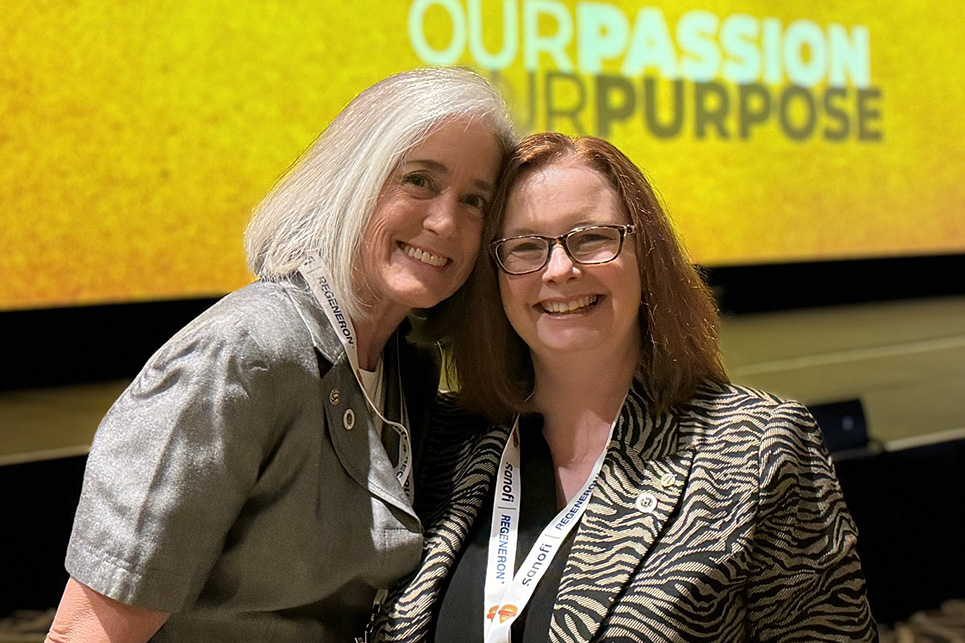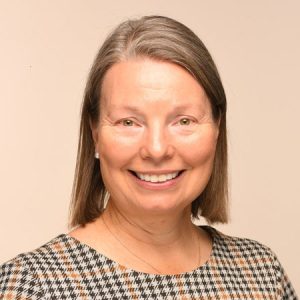Jan. 23, 2024

Story by Ryan Gauthier
When Dana Evans was sworn in as president-elect of the American Association of Respiratory Care (AARC) in early November, the College of Health Sciences was near her heart.
Quite literally — on the lapel of her jacket, she proudly displayed a CHS pin during the ceremony.
“It’s funny because you make these choices when you’re 17 years old, but I would not be sitting where I am today if I did not attend the University of Missouri’s Respiratory Therapy program,” Evans said. “It shaped who I am and the way that I view the world as a professional. My time at Mizzou gave me all the tools I needed to succeed.”
Evans will serve as president-elect for the next year before taking over in November 2024 as president of the association. She said being sworn in during AARC Congress 2023 was an emotional moment. Beyond representing 20 years of hard work, she said being elected by her colleagues to represent the profession was a profound moment.
“The AARC represents about 40,000 active members, and it’s just a huge honor to be trusted at that level by my peers,” she said. “I plan to continue to support advancements for our respiratory therapists and enhance recruitment into the profession. We can ensure that our patients are getting the exceptional care that they deserve by getting our respiratory therapists access to all the tools they need to do that.”
Beyond earning both her Bachelor of Health Science and Master of Health Administration from Mizzou, Evans also was a faculty member with the Respiratory Therapy program from 2003 to 2008. She currently serves as the regional respiratory director for the Midwest with Advocate Health system, where she oversees 27 hospitals and 938 respiratory therapists.
We talked with Evans about her time at Mizzou, her plans as president-elect of the AARC, and the future of respiratory care.

What memories have stuck with you from your time at Mizzou?
I remember spending my days in RT school being very stressed out and very anxious and wondering if I was ever going to understand mechanical ventilation, which was taught by Dr. Kathy Myers at the time. I remember her teaching us volume control ventilation using M&M’s — and probably the biggest trick was not eating the M&M’s. But it was this really beautiful way of understanding volume and flow and how things function. And it was such an honor to later be able to teach alongside her with those M&M’s when I became a faculty member at MU.
What has the MHA program meant for your career?
I owe my success and growth up the ladder of health care to the MHA program. Without that degree and that additional education, I would never have had the opportunity to achieve the professional success I’ve had. It’s all because of my opportunities and the things that I was able to learn through the MHA program at Mizzou with Sue Boren and David Moxley and all of the other incredible faculty members.
The executive program allowed me to continue to work as a respiratory therapist, teach as a respiratory therapist, and complete my graduate work all at the same time. I’m really grateful that that was literally right next door in the same building that I was teaching in because it made it so easy for me to do that.
How are you working to mentor the next generation of respiratory care professionals?
Any one person’s legacy is not a project or a plan, it’s the people they’ve mentored along the way. I’m deeply passionate about mentoring and sponsoring — not only early careerists but also mid-careerists and people who are deep in their career but don’t know or haven’t realized they have so much more to offer or haven’t been asked to offer those things. So as a volunteer, I spend a lot of time trying to find new faces and new voices and new perspectives from all over the country who have so much to give.
But sometimes everyone needs a leg up along the way. And for me, that is about paying it forward. I think it is my job to say the name of other people and really support their movement into the profession so that there’s a continued string of individuals who continue to move the profession forward.
What advice do you have for professionals aspiring to follow a similar career path?
The best thing you can do is find a mentor to support you along your journey. And the best way to formulate a good mentor-mentee relationship is to know what you want and have goals that you can work toward with that mentor.
Find someone who has the role that you want or who has achieved something that you want, and then ask them for advice or a potential professional mentorship. If you don’t already have someone in your sphere who can help you achieve your goals, you can reach out to people on LinkedIn for advice. They may not want to give you 40 hours of help, but they likely will respond and offer some guidance on your journey.

